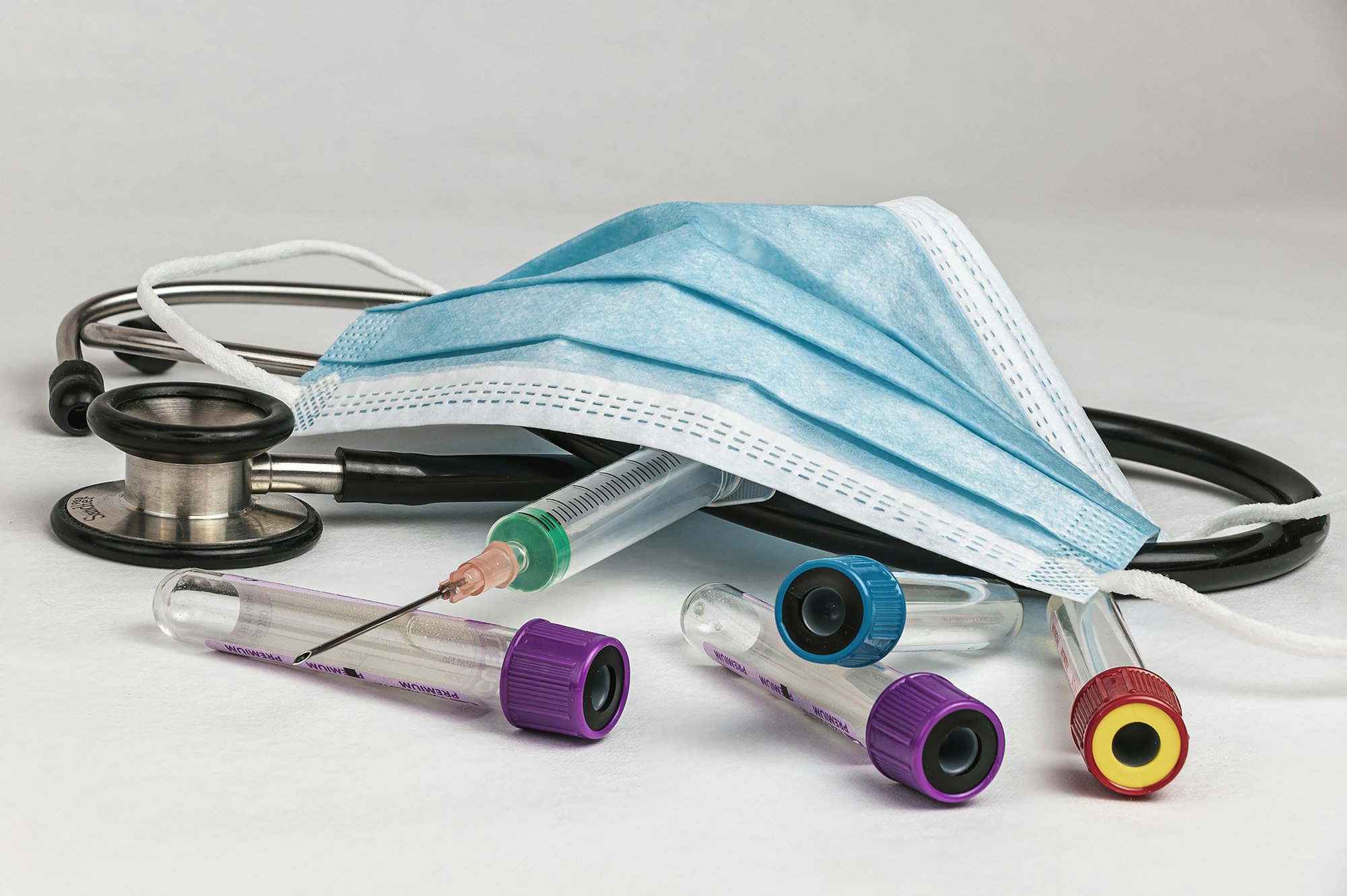Everything You Need to Know: Pharmacy Residency Application & Interview Process
For those of you who are on the path of pursuing a pharmacy residency, this article will hopefully serve as a helpful resource in mitigating any challenges you may face throughout the application and interviewing process.

Author: Justin Shiau, PharmD
Editors: Kristen Lindauer, PharmD and Brentsen Wolf, PharmD
REPOST: With the phase I match results coming on March 15th this year, we thought it would be timely to repost our guide on the pharmacy residency application and interview process. Enjoy and good luck!
Last year on RxTeach, Dr. Kristen Lindauer, PharmD shared her “Day in the Life” as a Postgraduate Year 1 (PGY-1) pharmacy resident. I highly recommend giving it a read when you have the time! Despite the exhausting and rigorous workload, completing a pharmacy residency is extremely rewarding and serves a specific purpose. If you have your sights set on pursuing a residency, you might be thinking, “I’ll have to match with one first.” And you are right. Not only is residency itself difficult, but the applications and interview process are certainly NOT a walk in the park. The entire process takes around eight months from start to finish! For me, it was probably the most challenging aspect of my P4 year. For those of you who are on the path of pursuing a pharmacy residency, this article will hopefully serve as a helpful resource in mitigating any challenges you may face throughout the application and interviewing process.
Before I provide you with my personal experience and tips on going through the process, I would like to emphasize one point. If you are not already a student member of the American Society of Health-System Pharmacists (ASHP), I highly recommend you become one. ASHP has a TON of great resources for students looking to obtain a pharmacy residency. Some resources are free to the general public like the Residency Directory, and others are available to members only. Click here to browse some of these resources.
With that out of the way, let's jump straight into some of these tips, tricks, and things to consider for the pharmacy residency application and interview process!

Your Residency Timeline: The first piece of advice I have is to make sure that you have your own schedule or calendar to keep track of everything related to the process. ASHP does provide a simple infographic to student members of a literal timeline. This resource separates the entire process from start to finish by month. While this can be useful, I ended up creating my own monthly schedule to fit my personal needs. Your schedule may look a lot different based on your own experiences. Here is an example of what the entire residency process looked like from my experience!
Program Research: It is extremely important that you do your research on which programs you want to apply for. This will be your future career if you successfully match with a PGY-1 residency program. You should make sure that the programs you apply to, and (hopefully) interview at, are ones that YOU find enjoyable. Here are a few things to consider when researching programs:
- What are your professional goals and what do YOU want out of a pharmacy residency program? This is probably the biggest factor when it comes to researching residency programs. I knew that I wanted a program that had a teaching certificate because pharmacy academia was one of my passions. Therefore, I focused my search on programs that offered one. I also knew that I (sort of) had an interest in oncology. So, I specifically targeted programs that offered a PGY-2 in oncology or had a strong presence in oncology at their institution.
- What are your limitations or restrictions? There may be barriers like geographic location, hospital size, number of co-residents, and family or relationship obligations that require you to live closer to home. Consider these prior to starting your search. A PGY-1 residency is only a year of your career, but spending it away from your support system may be a tougher challenge than you think.
- Broaden your network! If you are planning on relocating to a new area and do not have many professional connections, consider joining the state organization for which the program is located. For example, Dr. Lindauer knew that she wanted to relocate to Virginia. In September of her P4 year, she joined the Virgina Society of Health-System Pharmacists (VSHP) to broaden her network. She was even able to attend the VSHP residency showcase. This provided her the opportunity to meet with programs on a more personal level compared to interacting at the national ASHP Midyear meeting in December.

Letters, Letters, Letters: Applying to residencies will force you to do a lot more writing than you have probably experienced in the past two years of pharmacy school. It is also dependent on the number of programs you pursue. There are two “letters” to keep tabs on. These include the Letter of Intent (LOI) and Letter of Recommendation (LOR). You are responsible for writing an LOI for each of your programs. Additionally, you are responsible for contacting mentors, faculty, staff, or pharmacists that you are confident will write a “highly recommend” LOR for you.
LOI tips:
- You may be thinking “Well, what if I am applying to ten programs? Does that mean I have to write ten LOIs?” Yes. You will have to write ten “different” LOIs, but I do have a trick for you.
- Write out an LOI for one program first and have a colleague proofread it. Once you have a finalized copy, use that LOI as a “template” for other programs. It is a good idea to have at least one paragraph in your LOI that talks specifically about each program and why you like them, meaning that you cannot get very far with a cookie cutter method.
- Please make sure to send the correct LOI to the right program. Sending the wrong LOI to the wrong program can take you out of the running immediately.
LOR tips:
- ALWAYS make sure that you ask your letter writers if they can write you one that is strong, positive, or “highly recommend”. There are plenty of instances each year where high-achieving students do not receive an invitation to interview because one of their letter writers did not “highly recommend” them.
- Provide your letter writers with as much information about the programs as possible. Some of your writers may have specific connections to the programs. This allows them to write you a specified LOR. It is also important that you know HOW to request the LORs through PhORCAS. You want to make sure to title each letter specifically so that when it comes time for assigning which letter goes to which program, you will have an easier time. This will help avoid sending the wrong LOR to the wrong program. See below for an example of how I titled each of my LORs.
- Boxed in BLUE are the LORs that are for specific programs because those letter writers had specific connections to those programs. Boxed in RED are the LORs I requested that were more "general". You usually want to request at least one “general” LOR per writer. Circled in GREEN are the notes where you put any extra information you want your writers to know. Boxed in PINK is the status of whether your writers have completed and submitted their LORs on PhORCAS.
Navigating PhORCAS: I want to briefly talk about the Pharmacy Online Residency Centralized Application System (PhORCAS). Personally, I did not enjoy using PhORCAS as the system to upload all of my documents. Not only was it a pain to navigate, but I also had issues with sending my updated transcripts. When you first create an account and log in, it should look fairly similar to the picture below with the same categories and tabs.
Most of these sections are self-explanatory (contact information, curriculum vitae [CV], LORs, and LOIs). You may notice there are sections for educational information and extracurriculars. It is important to fill out ALL sections. Even though you are uploading a copy of your updated CV, you still want to fill out the extracurriculars section. Programs who received hundreds of applications will take the PhORCAS entries for specific topics (work experience, leadership, etc...) and pre-screen candidates to cut down on the number of applications they have to review in full. If you leave a section blank on PhORCAS because you know that the information is contained on your CV, you may be selling yourself short.
The “Match Registration” tab at the top is there to remind you to complete PhORCAS and to register and create an account for the National Matching Services (NMS). It does cost $160 to register for NMS, so keep that in mind!
The “Status” tab at the top is to help you keep track of how many transcripts were received by PhORCAS, how many applications (and payments) you submitted, and the LORs that have been submitted by your letter writers.
PhORCAS usually opens in early November. Keep a look out for any updates through your email if you are signed up to receive notifications from ASHP. Your school may email information as well, as they are usually making announcements for these types of things.
Residency Interviews: You may be wondering, "How do I schedule my residency interviews?" The first thing I want to say is to be transparent with your APPE rotation preceptors. Let them know that you are applying for residency and may also be interviewing throughout the months of January and February. More often than not, they will be understanding and allow you to interview at as many places as possible while still performing well on rotations.
Depending on how many programs you applied to, you may be surprised how quickly interview invitations will enter your inbox. I applied to 13 different programs and started to receive interview offers in early to mid-January. As offers came in, I scheduled interviews as quickly as I could. Normally, programs offering you an interview will provide a selection of limited dates. RESPOND ASAP because nearly all interview offers are on a first-come-first-serve basis. You do NOT want to wait for other programs to send interview offers. If you find that you have a specific conflict (e.g., two programs only offer dates that conflict), reach out to one of the program directors to see if you can receive an alternative date for your interview. Most of the time they will oblige.
You may be curious about how the interviews actually go. Make sure to practice, practice, practice for these interviews! You may think you already have some interview skills under your belt, but these interviews are a whole other beast. The average duration for my residency interviews were around 3 to 4 hours. Make sure to have specific scenarios from your own experiences in your arsenal when preparing. You never know what they'll ask until you are in the interview. Here are a few questions I can almost guarantee will be asked:
- Tell me about a time where you made a clinical intervention that benefited a patient. What intervention did you make and what was the outcome?
- Tell me about a time where you had a conflict with a co-worker, preceptor, peer, or other individual. How did you resolve it and what was the outcome?
- Why did you choose this program?

In-person vs. virtual: Not sure if this will apply to those of you applying in the future, but the pandemic did push almost all of the programs to offer virtual interviews through Zoom, Microsoft Teams, Cisco Webex, and other platforms. Of course, if they only offer virtual interviews, then you have no choice. However, since our society does seem to be adjusting more to the pandemic, I would not be surprised to see programs going back to in-person interviews in the near future.
Other pieces of advice:
- If your interviews are virtual, do not have your pets around. You may think it is cute, but seriously, put them away. It can be noted by the interviewers in a negative manner.
- If they ask about your weaknesses, make sure to explain how you are actively working to improve them. Even better, turn that weakness into a strength by making it specific towards the program! For example, “I would say one of my weaknesses is being afraid of getting the answer wrong or making a mistake. This makes me a bit more cautious when it comes to decision making. This will definitely be amplified once I make the transition from student to pharmacist. However, this is definitely something that I have been working on. I know that residency is a time for transitioning and learning. After talking with your program at the residency showcase, I know that I will be fully supported throughout my transition from student to pharmacist.”
- ALWAYS, ALWAYS, ALWAYS ask the programs questions at the end of each interview. One good question to ask them is: “Where do you see your program/pharmacy department in five years?”
Applications and Interviews FAQ:
- How many programs should I apply for? This depends on your personal preference and comfort. Keep in mind that this process is quite costly. During my year (the 2021-2022 application and interview cycle) PhORCAS charged $110 total for the first four programs and then an additional $43 for every program thereafter. Increasing the amount of programs you apply for enhances your chances of receiving more interview offers. This theoretically increases your chances of obtaining a residency. Still, you don't want to overdue it or bite off more than you can chew.
- PhORCAS vs. NMS. These are two separate entities. You are REQUIRED to create an account for each and pay the respective fees in order to participate in the residency application, interview, and match process.
WHEW. That was a lot of information! If I'm honest, even though it seems like I have written a book about the application and interview process, there are probably another five volumes that I could write. Once again, the above list of tips, tricks, and considerations is not all-inclusive. If you are from SIUE School of Pharmacy, be sure to join the SSHP Residency Happy Hours that occur from August - February. They are extremely helpful! They go through everything discussed above, but in more detail. The sessions are live so you can ask questions right then and there. If you are from another school of pharmacy, reach out to your society of health-system pharmacists or a faculty member to find out the resources available at your school. Please do not hesitate to reach out to me if you have any further questions; I’d be happy to answer them!
Interested in further information from Residency Program Directors? Check out these YouTube videos from various regions across the United States!
Author Bio: Justin Shiau is a current PGY1 Pharmacy Resident at Northwestern Medicine Central DuPage Hospital. Justin graduated with his Doctor of Pharmacy degree from the Southern Illinois University of Edwardsville in May 2022 with a specialization in education. In his free time, Justin likes to run, cook, and game with his buddies. Connect with him via LinkedIn here!


